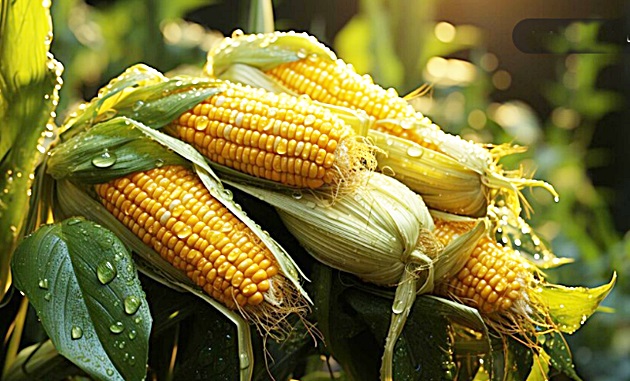805

According to experts at the European Corn Congress, cited by Euractiv, Ukraine's revived capacity to export grain now raises questions about competition with EU producers; however, future integration can be an opportunity for the bloc to increase its influence in global food markets.
Ukraine's corn exports have recovered losses
Ukrainian corn was the grain most affected by the blockade of the Black Sea export route at the beginning of the war. But Kyiv's exports have now regained their capacity, returning to pre-war levels, experts said at the European Corn Congress in Paris on May 15.
"In addition to the port of Odesa, which set a record with 5.4 million tonnes exported last month," Ukraine "has developed transport by trucks and railways through [other] corridors," said agricultural markets specialist consultant Arthur Portier at the meeting.
According to Portier, after the bombing of the ports of Odesa and Mykolaiv – which destroyed 4 out of 5 terminals – other ports such as Izmail and Reni in the Danube delta have attracted investors. The latter has gone from exporting zero before the war to 1.5 million tonnes of corn per month today. In addition to ports, road corridors ensure around 6 or 7 million tonnes per month of exports.
New concerns
Last April, the EU granted Ukraine another year of tariff relief but combined it with "safeguard mechanisms" targeting "particularly sensitive" products, including corn and other cereals, due to protests from EU farmers, especially in Poland.
The mechanism limits import volumes of these products to average levels imported by the EU between July 1, 2021, and December 31, 2023, beyond which tariffs will be reimposed.
"[Two years ago] we already asked for export certificates to be introduced for all products coming from Ukraine, but the Commission lacked courage. Mrs. Von der Leyen said that this could send a signal that Ukraine is being restricted, but we did it two years later," said Renew European Parliamentarian and former agriculture commissioner, Dacian Cioloș.
The decision not to include wheat in the mechanism is "inconsistent," Portier said, given that wheat imports from Ukraine have increased sevenfold since the start of the war. As Europe "we are structurally an importer of corn, not wheat," added the specialist.
A special envoy for agricultural integration
European production growth is stagnating, estimated at around 66 million tonnes by 2024-2025, with the EU increasing dependence on supply from Ukraine and Brazil, the expert insisted.
At the same time, global corn demand is growing due to its use in ethanol production. With population growth in non-producing countries, such as sub-Saharan Africa, it will only emphasize the importance of the commodity, Portier highlighted.
EU production can hardly keep up, according to Portier, because such growth would not be compatible with the Green Deal or with Europe's "aversion to science," in other words, genome editing.
An opportunity?
In this scenario, a hypothetical integration of Ukraine into the EU would be an opportunity. "We would produce 118 million tonnes of corn, while Brazil produces 122 million tonnes. We would become a major global producer and exporter," said Portier.
For Ciolos, "Ukraine could strengthen Europe rather than weaken it if done smartly, by gaining an advantage and redefining public policy." He proposed that the EU appoint a "special envoy" to Ukraine for a period of 2-3 years to ensure coherent policies as part of a reconstruction plan.
According to Portier, currently, Ukraine's corn production is even better than other cereals because, unlike wheat, 20% of which is produced in occupied areas, corn crops are mainly grown in the north of the country and have not been affected by the war.
"The current cruising speed of 27 million tonnes produced per year in Ukraine can stabilize in the following seasons," concludes Arthur Portier. (Photo: Freepik)




